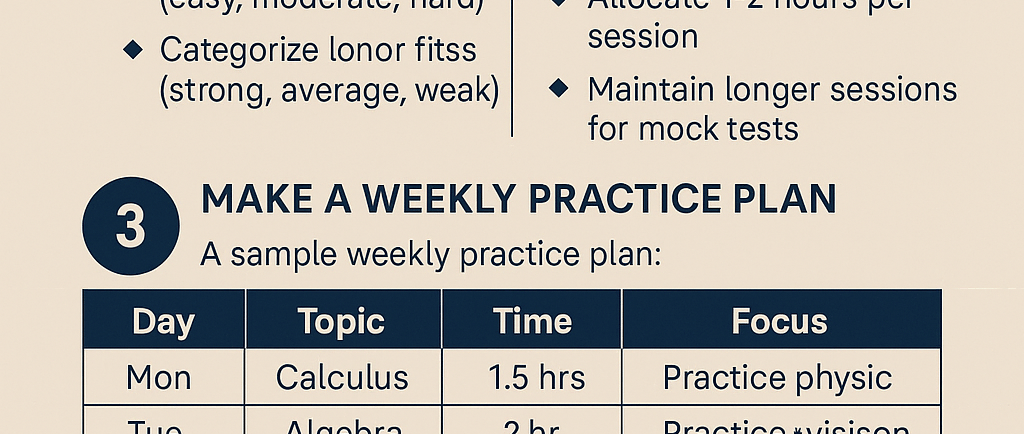How to Prepare a Practice Schedule for Complex Maths Problems


Mastering complex mathematics requires more than just reading formulas or watching tutorials — it demands structured, consistent practice. Without a proper plan, even the brightest minds can feel overwhelmed by topics like calculus, algebra, probability, or number theory. Here’s a step-by-step guide on how to create a practice schedule that helps you tackle complex maths problems effectively.
🧠 Step 1: Know Your Syllabus and Weak Areas
Start by listing out all the topics you need to cover. Categorize them based on:
Difficulty level (easy, moderate, hard)
Your comfort (strong, average, weak)
This helps you understand where to spend more time. For example:
Strong in algebra? 2 days/week.
Weak in calculus? 4 days/week.
Step 2: Choose the Right Time Block
Complex math requires high focus. Choose your peak mental hours (usually early morning or evening).
Allocate 1–2 hours per session, ideally in 25–30 min chunks with short breaks (Pomodoro method).
Keep one long session (2 hours) once or twice a week for mock tests or deep problem-solving.
🧩 Step 3: Break Problems into Level
Instead of jumping straight into hard problems, build up step-by-step:
Day 1–2: Revise key concepts and formulas.
Day 3–4: Solve basic and intermediate problems.
Day 5–7: Focus on complex, multi-step problems.
Use a mix of:
Textbook problems
Olympiad/competitive exam questions
Real-world applied problems
📊 Step 4: Track Your Mistakes & Progress
After every session:
Mark incorrect problems
Note why you got them wrong (concept error, silly mistake, skipped step)
Revisit those problems after 3–4 days
Use a notebook or app (like Notion or Excel) to log
Topics covered
Accuracy %
Time taken
💡 Step 5: Use Strategic Resources
Solve from multiple sources: Textbooks, mock tests, Olympiad sheets
Watch conceptual videos before practicing tough problems
Join a study group or math forum for doubt clearing and peer support
🧘♂️ Step 6: Balance Practice and Recovery
Math burnout is real. So:
Don’t skip breaks
Add some variety (switch topics to keep the brain fresh)
Sleep well — your brain needs rest to retain complex logic
✍️ Final Words
Complex math isn’t mastered by cramming — it’s built through daily, deliberate effort. A structured practice schedule helps you stay focused, improve gradually, and build the confidence to solve even the toughest problems.
Remember: “Mathematics is not about numbers, equations, computations… it is about understanding.” – William Paul Thurston
